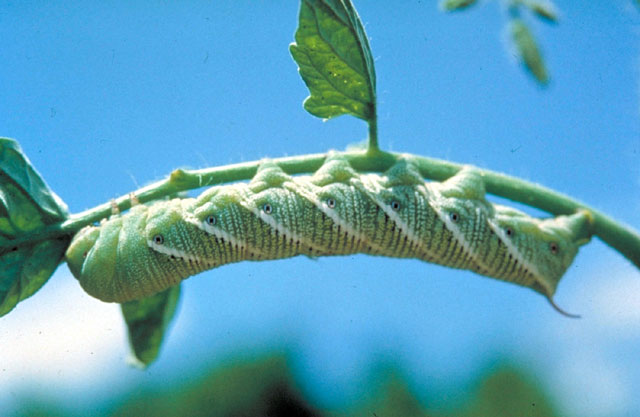How to Control Tomato Hornworms

Tomato hornworms grow up to 5-inches long and look green and nasty with that horn on their hindquarters. This worm can decimate plants quickly as you can see evidence of them in the large holes they chew in leaves and fruit. If you are tired of these nasty worms and want to get rid of them, then keep reading this article to know how you can effectively control them to prevent any damage to your plants
Things Required:
– Gloves
– Bacillus thuringiensis (Bt)
– Garden Shears
– Garden Hoe
Instructions
-
1
First, you should consider handpicking tomato hornworms. For that purpose, you can wear garden gloves and hunt these creatures down and pluck each of them from your favourite plants. Here, you will have to be very careful as the hornworms are usually camouflaged by turning themselves the same colour as the leaves of your plants. You can get an idea where they are by finding and looking above their round black droppings. Dispose of them by snipping them in two with garden clippers or simply step on them. Do not kill any hornworm that looks like it has grains of rice on its back: they might be parasitic wasp cocoons, which will eventually kill the worm. These cocoons will hatch into more wasps that can be instrumental in killing more hornworms.
-
2
If you want to use a non-chemical product, Bacillus thuringiensis (Bt) is a powder that is available at garden centres. Bt is a natural soil bacteria and is very safe for humans, pets and the environment if used according to directions. You can follow the instructions to spray Bt in places where hornworms exist. Here, it is advised that you should try to spray at night as this is the time when these creatures are most active.
-
3
Consider growing nectar or pollen plants. These plants attract parasitic wasps, which can control hornworm populations. Plants such as dill, carrots, angelica, parsley and Queen Anne's lace are especially good for attracting beneficial insects.
-
4
Hoe the first two inches of soil around your tomato plants in the spring. Look for large brown pupa or chrysalis and dispose of them. This way, you will be able to control their population to a great extent, even before they attack your plants.







